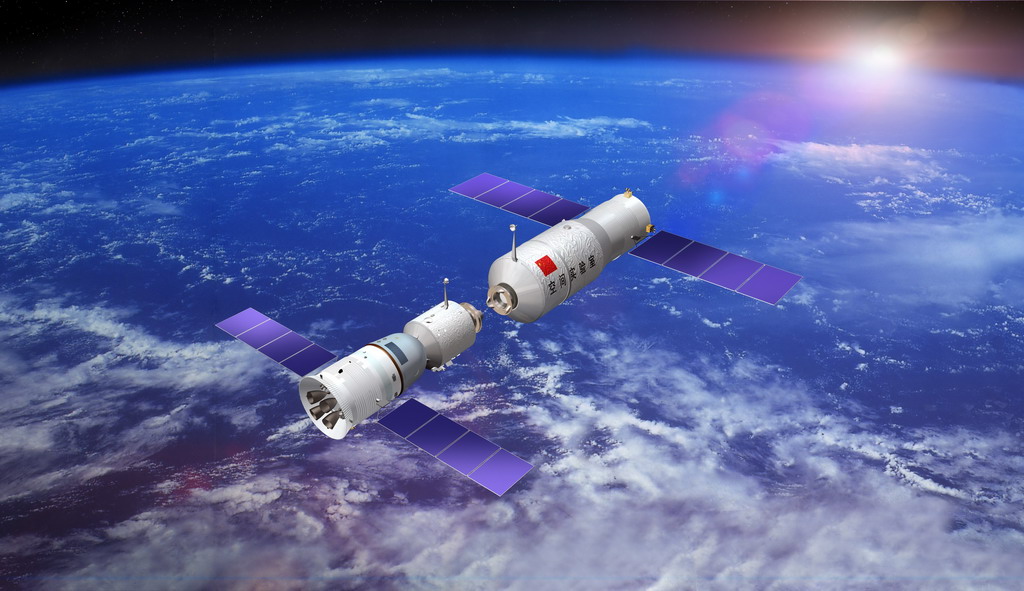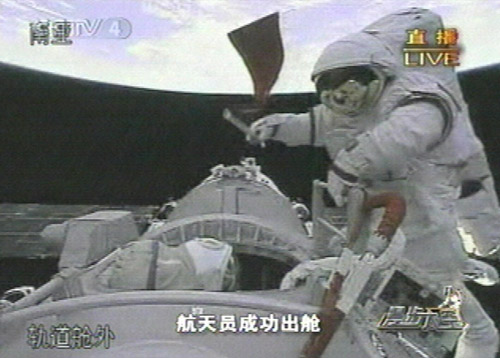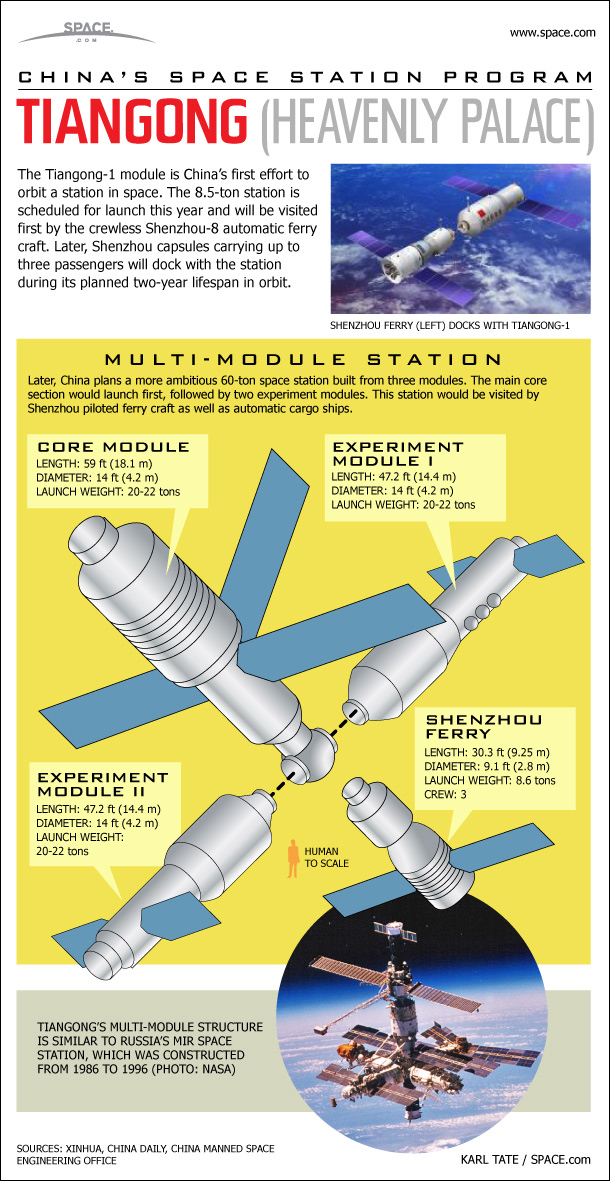Washington Worries China Will Challenge U.S. Dominance in Space

U.S. power brokers aren't sure how to handle China's rapidly expanding space capabilities, according to testimony at a congressional hearing yesterday (May 11).
China recently demonstrated the ability to destroy satellites on orbit, and it's ramping up plans for a space station and a possible manned lunar landing in the next decade or so. At a hearing on "The Implications of China's Military and Civil Space Programs," a range of experts discussed what these developments might mean for the United States.
While opinions and viewpoints varied, a few key themes emerged, including the need to engage with China to better understand just what the nation hopes to achieve in space. [Photos: China's First Space Station]
"There's still a lack of clear understanding of what Beijing's goals are, and how we interact with those," Ben Baseley-Walker of the Secure World Foundation, a non-profit organization committed to space sustainability, told SPACE.com. Baseley-Walker attended the hearing, which took place at the Capitol in Washington, D.C.
China's space capabilities ramping up
In 2007, China destroyed one of its own satellites on orbit during an anti-satellite test, showcasing an ability that makes the United States and other nations nervous. Since then, the country has conducted other tests advancing its military space capabilities, including a 2010 missile-interception demonstration.
Beijing is also ramping up its human spaceflight program. In 2003, China became the third nation to launch a person into space, and it has flown several manned missions since.
Breaking space news, the latest updates on rocket launches, skywatching events and more!
The country also hopes to build a large space station between 2015 and 2022, according to hearing panelist Alanna Krolikowski, a visiting scholar at George Washington University's Space Policy Institute.
And, beyond that, China appears to be gearing up for a manned lunar landing. The nation's human spaceflight program aims to complete an in-depth concept study on the subject by about 2020, Krolikowski said at the hearing. [Infographic: How China's First Space Station Will Work]
These developments have some politicians and policy experts worried. They think China may be positioning itself to challenge outright the United States' dominance in space, which currently gives America a huge advantage on the battlefield.
“What concerns me most about the Chinese space program is that, unlike the U.S., it is being led by the People’s Liberation Army (PLA)," Congressman Frank Wolf (R-VA) testified at the hearing. "There is no reason to believe that the PLA’s space program will be any more benign than the PLA’s recent military posture."
Is Beijing a threat?
The White House has recently stated a willingness to work with China on expensive, difficult space projects, such as a manned mission to Mars. Wolf thinks this is a bad idea, citing the potential threat China poses as well as its abysmal human-rights record.
"The U.S. has no business cooperating with the PLA to help develop its space program," said Wolf, who chairs the commerce, justice and science subcommittee of the powerful House Appropriations Committee.
However, other panelists cited the possible benefits to the United States of such cooperation, which range from expanding opportunities for American businesses to increasing space security. If the United States thinks China can become a "normal" spacefaring country, keen to exploit space commercially, collaboration is probably a good idea, according to Krolikowski.
"As China invests in and derives greater benefit from space, it will acquire the same stake in creating a predictable, stable, safe and sustainable space environment that the U.S., Canada, Japan and European and other countries already share," Krolikowski said.
Cooperation and engagement could also help reveal China's goals for space. Does China, for example, hope to dominate military space aggressively in the near future, or is it concerned more about self-defense?
"While China’s capabilities in space are known to U.S. observers, its intentions are not," Krolikowski said.
According to Baseley-Walker, panelists stressed the importance of getting to the bottom of those intentions. It's difficult to draw up and implement effective policy, after all, without a basic understanding of where China is coming from, and where it's going.
You can follow SPACE.com senior writer Mike Wall on Twitter: @michaeldwall. Follow SPACE.com for the latest in space science and exploration news on Twitter @Spacedotcom and on Facebook.

Michael Wall is a Senior Space Writer with Space.com and joined the team in 2010. He primarily covers exoplanets, spaceflight and military space, but has been known to dabble in the space art beat. His book about the search for alien life, "Out There," was published on Nov. 13, 2018. Before becoming a science writer, Michael worked as a herpetologist and wildlife biologist. He has a Ph.D. in evolutionary biology from the University of Sydney, Australia, a bachelor's degree from the University of Arizona, and a graduate certificate in science writing from the University of California, Santa Cruz. To find out what his latest project is, you can follow Michael on Twitter.


